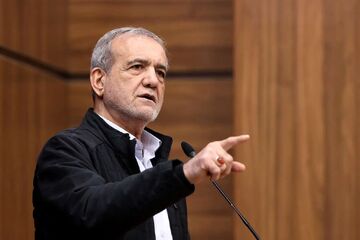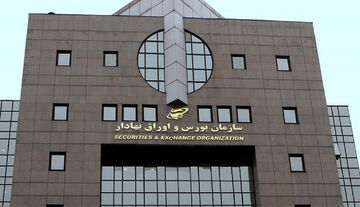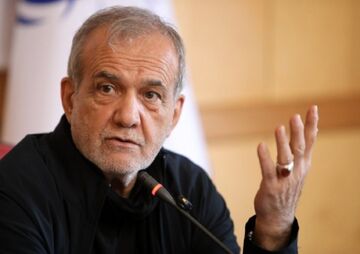Tehran(Bazaar): Although the Belt and Road Initiative received the preliminary approval of 68 states, there is a suspicion that this project was implemented as an instrument of China's imperialist expansion in all states, including Russia, Kadir Ertac Celik tells Bazaar in an exclusive interview.
Noting that the most serious challenge to the dominant role or hegemony of the USA comes from China, Celik also says that China carries out this challenge through economic or commercial areas.
Kadir Ertac Celik is a security adviser at Ankara-based think tank ANKASAM (Ankara Crisis and Political Research Center).
The following is the text of the interview:
Bazaar: Biden believes that important economies and democratic markets must work together to meet the challenges posed by major competitors such as Russia and China, as well as transnational challenges ranging from nuclear proliferation to climate change and cybersecurity. The US plans to spend $300 million annually from 2022 to 2026 to counter the global influence of China and Russia and to destroy the "One Belt One Road" plan, and the United States and its allies plan to come up with a "democracy-oriented" infrastructure development plan to counter China's "One Belt One Road" ones. To what extent does Biden's decision jeopardize the national interests of Russia and China?
Celik: Biden, who took the presidency on January 20, 2021, declared his foreign policy to the international public with the motto "USA is back". This motto means that the USA will again pursue an effective and active foreign policy on a global scale. In this context, it is obvious that a vision will be drawn for all areas where the US has interests and threat perceptions. The reason for this is quite simple: maintaining US hegemony or global leadership. Today, however, the most serious challenge to the dominant role or hegemony of the USA comes from China. China carries out this challenge through economic or commercial areas.
The Belt-Road Initiative, put forward by China and in which 68 countries are directly or indirectly involved, is a project that has the potential to end the global economic superiority of the USA. This project, which was systematized on the basis of re-activating ancient trade routes and marketing the resources of the East by using them from the East, became even more important as Asia-Pacific became a production center.
The Biden administration is trying to respond to this serious challenge by using the same instruments. In this context, it wants to activate new generations and roads and to fail the "Belt and Road Initiative" by operating this mechanism with the actors in cooperation with the USA.
Finally, when we look at the recent National Security Strategy Documents of the USA, it is seen that China is the enemy and Russia is considered as a rival. In addition, the official statements of President Biden and his team confirm this approach. Therefore, there is a high-level global struggle between the USA and China, and there is a rivalry between the USA and Russia, and this move of the Biden administration aims to limit the two states in question and to neutralize this competition.
Bazaar: Some experts believe that Russia is strategically interested in developing the NSTC to its maximum extent in general with access to Iran and in particular to the port of Chabahar and then to Pakistan, India and ASEAN as well the Persian Gulf and the Indian Ocean Region (IOR). The Russian side is even more likely to oppose the Tashkent, Kabul and Islamabad projects than Beijing. The Uzbek-Afghanistan-Pakistan railway project is in direct conflict with China's interests in pursuing trans-Afghan transportation projects under the One Belt One Road program. These Chinese projects are mainly bypassing the territory of Uzbekistan and aim to diversify the flow of goods. However, Beijing has not yet entered the practical stage, given the real situation in Afghanistan. What is your opinion and evaluation?
Celik: We see that the international political and economic system is undergoing a serious and rapid change. Alliances or rivalries or relationships become dynamic accordingly. Each regional power is trying to position itself in the new global system with projections for its own basin.
Considering the unstable and conflict-ridden nature of the region, it is unlikely that these projects will be implemented in the short term to the intended extent. This assumption becomes even stronger, especially when Afghanistan's current drift towards civil war and the US's attempt to further destabilize the region with its withdrawal strategy are taken into account.
When reading through NSTC on the one hand and other projects on the other, it is seen that all of them are strategic initiatives and will have an impact on a global scale. It is obvious that the actors who control or manage the economic functioning will gain superiority over their rivals in the global political system.
Although the Belt and Road Initiative received the preliminary approval of 68 states, there is a suspicion that this project was implemented as an instrument of China's imperialist expansion in all states, including Russia. For this reason, it is not desired not to completely lose control of the routes and to leave the routes drawn by China without alternatives.
China, on the other hand, does not want to be a party in this process or to confront any state other than the USA. Because China claims that it still follows a peaceful foreign policy and claims that it has no political claim in the international system.
It claims that he only has a problematic relationship system with the USA, and that the reason for this is the aggressive policies of the USA. Therefore, it tries to remain more passive in these processes. Thus, China believes that it will bring the opponents of the USA together more on the Beijing line.
















نظر شما